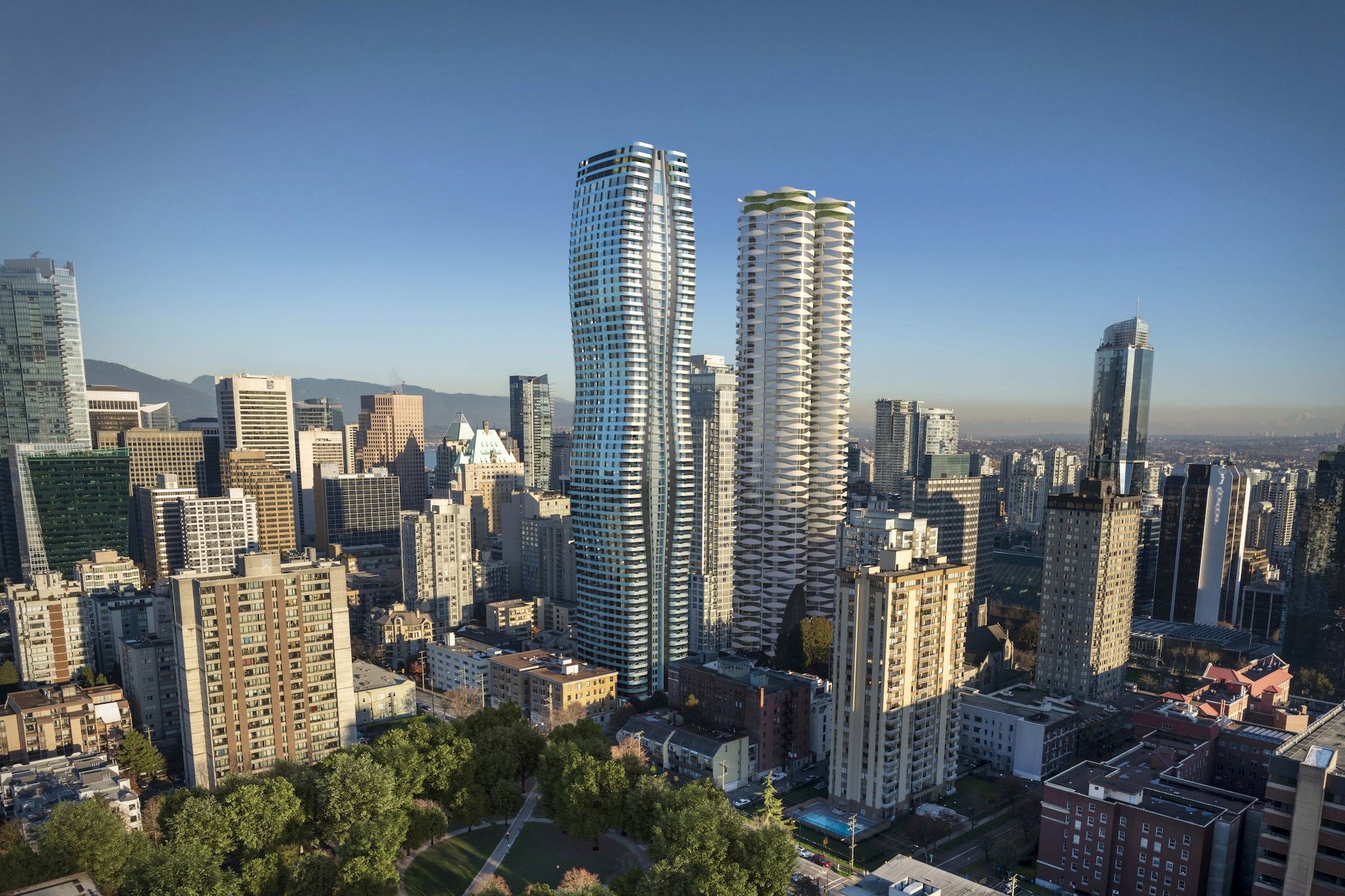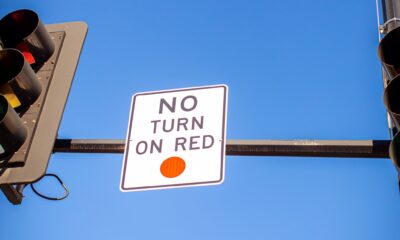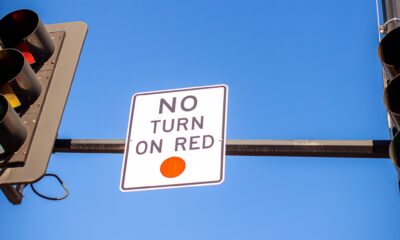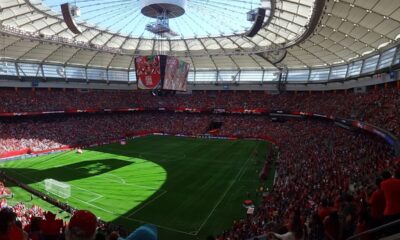Lifestyle
Vancouver’s Curv Tower Project Faces Collapse After Speculative Flips

The ambitious plans for the Curv tower development in Vancouver’s West End are now in jeopardy following the developer’s default on a substantial mortgage. The project has become a case study on speculative real estate practices that have surged since the adoption of the West End Community Plan in 2013, which aimed to revitalize the area but has drawn significant criticism for its impact on affordable housing.
In 2013, Vancouver City Council approved the West End Community Plan, igniting a frenzy for older, affordable rental properties. This led to many tenants being evicted as developers sought to replace low-rise buildings with high-density condominium towers. The Curv site, previously home to two low-rise apartment buildings at 1059-1075 Nelson St., was purchased by Wall Financial Corporation for $16.8 million in 2013. By 2016, the site changed hands for $60 million, and just one month later, it was flipped again for $68 million. These transactions avoided the Property Transfer Tax due to their structure as share sales.
The site saw further developments when Henson Development received approval in 2020 to rezone the property for a 60-storey tower, promising to include 102 social housing units as part of the project. Subsequently, in 2021, Henson sold the site to Brivia Group for an undisclosed amount, speculated to be over $100 million.
In 2023, Brivia informed city officials that it would not proceed with the promised social housing. This prompted city staff and the Vancouver City Council to amend the West End Community Plan in 2024, allowing Brivia to substitute a cash payment of $55 million for the social housing, a significant reduction from the estimated $70 million value of the in-kind contribution. Additionally, Brivia was granted an increase of 95,000 sq. ft. for market rental housing density, along with 15,000 sq. ft. of enclosed balcony space.
Despite the city’s planning director, Josh White, publicly expressing pride in the revised plan, the project has now hit a significant roadblock. In April 2025, Brivia Group defaulted on its $91 million mortgage, indicating a potential move towards receivership. This development raises questions about the future of the Curv project and highlights the speculative nature of real estate transactions in the city.
The ramifications of the Curv project extend beyond its immediate financial implications. The entire process has generated substantial profits for property flippers and provided ample work for consultants and real estate agents. According to recent figures, real estate and development contribute 28.5 percent to British Columbia’s GDP, a figure that far exceeds that of other provinces and countries.
As the Curv project faces uncertainty, it serves as a cautionary tale regarding the speculative nature of real estate development in Vancouver. With promises of affordable housing often sidelined for financial gain, many are left questioning the true beneficiaries of such ambitious urban projects. The future of the Curv tower remains unclear, but its impact on the real estate landscape and local community will likely be felt for years to come.
-

 Politics4 weeks ago
Politics4 weeks agoSecwepemc First Nation Seeks Aboriginal Title Over Kamloops Area
-

 World5 months ago
World5 months agoScientists Unearth Ancient Antarctic Ice to Unlock Climate Secrets
-

 Entertainment5 months ago
Entertainment5 months agoTrump and McCormick to Announce $70 Billion Energy Investments
-

 Science5 months ago
Science5 months agoFour Astronauts Return to Earth After International Space Station Mission
-

 Lifestyle5 months ago
Lifestyle5 months agoTransLink Launches Food Truck Program to Boost Revenue in Vancouver
-

 Technology3 months ago
Technology3 months agoApple Notes Enhances Functionality with Markdown Support in macOS 26
-

 Lifestyle3 months ago
Lifestyle3 months agoManitoba’s Burger Champion Shines Again Amid Dining Innovations
-

 Top Stories2 months ago
Top Stories2 months agoUrgent Update: Fatal Crash on Highway 99 Claims Life of Pitt Meadows Man
-

 Politics4 months ago
Politics4 months agoUkrainian Tennis Star Elina Svitolina Faces Death Threats Online
-

 Sports5 months ago
Sports5 months agoSearch Underway for Missing Hunter Amid Hokkaido Bear Emergency
-

 Politics5 months ago
Politics5 months agoCarney Engages First Nations Leaders at Development Law Summit
-

 Technology5 months ago
Technology5 months agoFrosthaven Launches Early Access on July 31, 2025





















